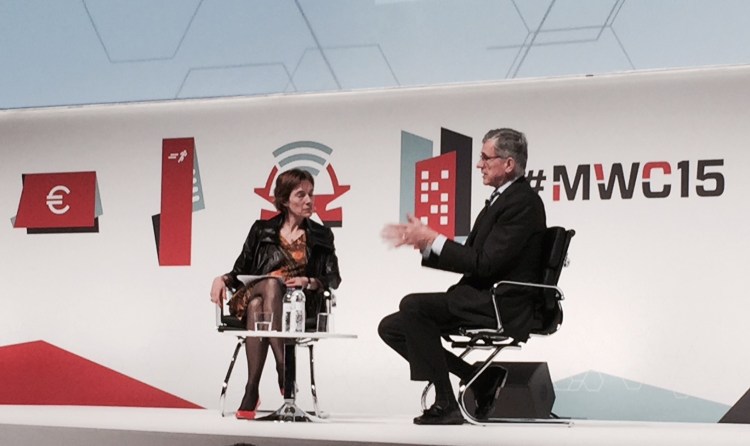BARCELONA, Spain — FCC chief Tom Wheeler fired back at network neutrality foes Tuesday, saying that claims that new open Internet regulations are “1930s-style regulation.”
Wheeler also took a shot at those who said that the 3-2 vote in the commission suggests that the issue isn’t really decided.
“You mention that it was a 3-2,” Wheeler said to the moderator here. “The fact is we got 50 percent more votes than they did.” By “they” he meant the commissioners who were against the open Internet rules.
The commissioner spoke during a keynote session at Mobile World Congress.
“Those who were opposed to the open Internet rules said that this was 1930s-style, Depression era regulation,” Wheeler said. “But we took the Title II concept and modernized it.”
The chairman pointed out that Title II regulation was something the wireless industry asked for back when he led the wireless industry trade group, the CTIA.
“We built our model for network neutrality on a regulatory model that has been wildly successful on mobile,” Wheeler said.
The wireless industry asked for Title II, Wheeler said, with the agreement that the FCC would not try to impose price controls or force carriers to share infrastructure.
Wheeler says that that’s the same approach that the commission will apply to the whole Internet with the open Internet rules.
The commission, Wheeler said, formed the open Internet rules by looking at the industry through the lens of four main concepts. These, he said, include the question of how to “unleash the power of broadband” for people and businesses, how to ensure that we have enough wireless spectrum (“the network of the twenty-first century is going to be wireless,” he said), how to maintain competition, and how to maintain the security of networks.
“If the Internet is going to be the [most] powerful and pervasive communication platform on the planet, can it exist without a referee?” Wheeler asked.
“It’s not a regulatory structure,” Wheeler said in a strong voice. “The question is, do we have a set of rules where we can ask ‘Is that activity just and reasonable, or do we need to throw the flag?'”
He also called into question the idea that all the big U.S. ISPs were against Title II. “Sprint wasn’t against it, T-Mobile said it didn’t have a problem with it, the smaller wireless providers were for it,” Wheeler said.
He also pointed out that Verizon invested $4.5 billion in a spectrum block, where part of the terms of the deal said that open Internet principles must be respected.
VentureBeat's mission is to be a digital town square for technical decision-makers to gain knowledge about transformative enterprise technology and transact. Learn More

